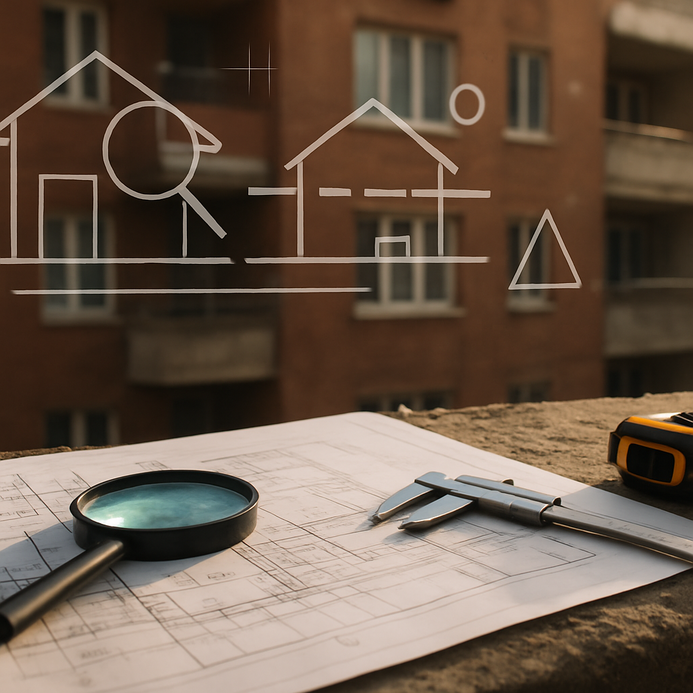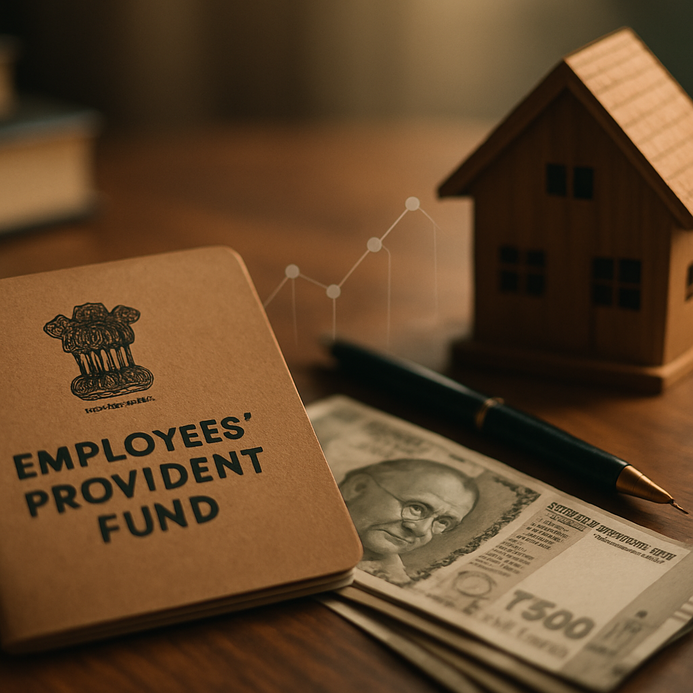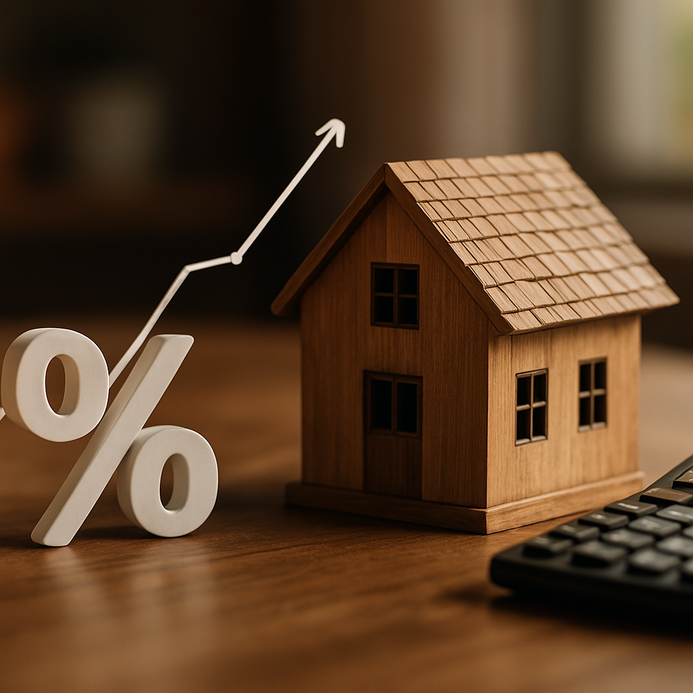Home Loan Process for Resale Properties in Hyderabad Made Simple
Understanding Resale Properties: An Overview
So, resale properties, huh? They’re basically homes that someone else called home before you, now waiting for a new resident. In Hyderabad, these properties are a huge part of the housing scene, offering everything from cozy flats to spacious independent houses. The best part? When you buy a resale place, you can move in right away, no waiting around for new builds to finish up. Plus, these homes usually sit in established neighborhoods with amenities and a solid sense of community. You know what you’re walking into.
| Aspect | New Properties | Resale Properties |
|---|---|---|
| Ownership History | No previous owners | Prior occupancy |
| Possession | Delayed | Immediate or quick possession |
| Pricing | Potentially higher | Often negotiable |
| Home Loan Eligibility | Various schemes available | Specific housing loan for resale property |
| Building Condition | May require customization | Possible wear and tear |
In a market like today’s, resale properties attract first-time buyers and seasoned investors alike. They let you really check out the condition of the home with inspections and appraisals, helping you make a more informed decision. Plus, for financing, many banks have specific loans just for these properties.
Now, understanding the differences between new and resale homes is kinda essential. Resale homes can have that charm and history that new builds lack, plus they often need less upfront cash. On the flip side, new properties might better meet modern tastes. So, it’s smart to think about things like legal details, maintenance costs, and how a neighborhood’s growth might impact your purchase. Articles like 9 Things To Watch Out for When Purchasing a Resale Property and Home Loan for Resale Property Made Simple can help guide that thought process.
Thinking about financing options? You might wanna check out articles like Critical Aspects of Buying a Resale Property for a deeper dive.
And if you’re looking for ways to boost your resale value, don’t miss our related articles: Unlock Financial Freedom and Improve CIBIL Score for Home Loan Approval.
The Importance of Legal Due Diligence
When buying a resale property in Hyderabad, getting your legal ducks in a row is pretty darn important. You wanna make sure the property doesn’t come with tangled disputes or hidden problems. Here are some must-check documents:
1. Sale Deed: Basically, it proves you own the place and has all the details.
2. Title Deed: Confirms the seller’s legit ownership; also checks for any annoying encumbrances.
3. Encumbrance Certificate: Shows the property’s not tied up in any loans or legal messes.
4. Tax Receipts: A quick check to ensure nothing’s overdue on property taxes.
5. Occupancy Certificate: Verifies the property’s fit for living and meets local rules.
| Document Name | Importance |
|---|---|
| Sale Deed | Proof of ownership |
| Title Deed | Validates property ownership and any encumbrances |
| Encumbrance Certificate | Shows no legal disputes or debts related to the property |
| Tax Receipts | Confirms property tax payments |
| Occupancy Certificate | Verifies compliance with building regulations |
Once you’ve checked off these documents, think about snagging a housing loan for that resale property. A lot of banks are down to offer pre-approved loans, which speeds things up and reassures sellers you’re serious. For more money moves, have a look at this source.
Need tips for best practices? Try this checklist on critical considerations before making a resale property deal.
Don’t forget to get some expert advice. Navigating the nitty-gritty of property documentation can be tricky. Look at resources like home loans for resale flats for extra guidance.
And for more on property documents and why they matter, check out our blog on Conveyance Deeds or our piece on Home Loan Documentation. It can make the home-buying process much smoother.
Getting a home loan for a resale property in Hyderabad isn’t just a walk in the park, it involves knowing your eligibility and the docs you’ll need. Different lenders might play by different rules, but here’s the lowdown on what’s generally required:
– Age: You’ve gotta be 18 to 65 years old.
– Income: A stable paycheck, whether you work for someone or run your own gig, is a must.
– Credit Score: Usually, they want a score of 750 or higher.
Here’s a quick rundown of the usual paperwork:
| Requirement | Details |
|---|---|
| Identity Proof | Passport, Aadhar, voter ID, or PAN card |
| Address Proof | Utility bills, rental agreements, or property tax receipts |
| Income Proof | Salary slips, bank statements, or income tax returns |
| Property Documents | Sale deed, title deed, and encumbrance certificate |
When thinking about a housing loan for a resale property, it’s super helpful to know your financing options:
– Fixed-Rate Loans: Your EMI stays the same throughout.
– Floating Rate Loans: Interest rates may change with market conditions.
Also, getting your loan pre-approved is smart, it speeds up the whole process and shows the seller you mean business (source).
For practical tips, check out articles like:
– Factors That Speed Up Home Loan Approval
– Home Loan Prepayment vs. Foreclosure
– First-Time Home Buyer Tips.
Grasping these parts can make the loan process a whole lot easier.
Key Legal Steps in the Resale Property Purchase
Buying a resale property has its unique legal sequences, and getting it right is key. Here’s how to tackle the paperwork step-by-step:
| Step | Description |
|---|---|
| 1. Obtaining a Home Loan for Resale Property | First off, check your eligibility for a housing loan on resale property. Gather documents like identity proof, income proof, and property docs. |
| 2. Drafting the Sale Agreement | Once the loan’s good to go, draft an agreement that lays out the terms, price, conditions, and parties involved. It’s proof of your mutual agreement. |
| 3. Title Verification | Do a deep dive into the title to confirm the seller can sell and that there are no encumbrances. A legal expert can make this easier. |
| 4. Payment of Stamp Duty | Once everything checks out, pay the necessary stamp duty, which varies by state, to make the sale agreement legit. |
| 5. Registration of Sale Deed | Get your signed sale deed registered with the local office. That’s how ownership officially shifts to you. |
| 6. Possession | After registration, take possession and ensure you have all relevant documents, including the Encumbrance Certificate, which shows property ownership history. |
For more on property documentation, check out our pieces like Home Loan Prepayment vs. Foreclosure or CIBIL Score for Home Loan Approval.
Common Pitfalls to Avoid in Home Loan Resale Property Transactions
Buying a home isn’t just about finding the right place, it’s about avoiding the common traps that can turn a smooth process into a headache. Here are some slip-ups homebuyers often make and how you can steer clear of them, especially with resale properties.
1. Ignoring Legal Due Diligence
A lot of folks skip on checking the legal stuff. Not verifying property ownership or unpaid loans can lead to legal issues down the line. Always, check the title deed, encumbrance certificate, and make sure those tax payments are current. This groundwork is super important, especially with bank resale properties.
2. Underestimating the Importance of a Home Inspection
Don’t skip a home inspection. It can uncover issues you didn’t see right away. Everything from shaky foundations to leaky pipes can hit your wallet hard if not addressed early. Before you finalize anything, do a thorough inspection, it’s crucial when applying for that housing loan.
3. Not Considering Total Costs
It’s easy to get stuck on the asking price but don’t forget the extras. Closing fees, property taxes, insurance, they add up more than you’d think. Knowing all costs involved helps you budget better for that home loan.
4. Rushing the Financing Process
Some buyers jump into financing too quick, grabbing the first loan that comes their way. This can mean worse rates or conditions that might haunt you later. Take your time to compare lenders and find the best deal for that resale property.
| Common Mistakes | Advice |
|---|---|
| Ignoring Legal Checks | Verify title deeds and tax records. |
| Neglecting Home Inspection | Hire a professional inspector. |
| Overlooking Additional Costs | Factor in closing and insurance costs. |
| Rushing Financing | Compare loans for the best rates. |
Also, look into our own resources, like tips on understanding property taxes and navigating those tricky home loan terms. You might find Understanding Force Majeure in Builder-Buyer Agreements, Home Security in Gated Community Flats, and Taxation on Short-Term Capital Gains helpful.
FAQ
- What is a resale property?
Resale properties are homes that have been previously owned and are available for purchase by new buyers. - What documents do I need for legal due diligence?
Essential documents include the sale deed, title deed, encumbrance certificate, tax receipts, and occupancy certificate. - How can I get a home loan for a resale property?
You must meet eligibility criteria such as age, income stability, and credit score. Required documents typically include identity and address proof, income proof, and property documents. - What common mistakes should I avoid when buying a resale property?
Common mistakes include ignoring legal due diligence, underestimating the importance of home inspections, not considering total costs, and rushing the financing process.













